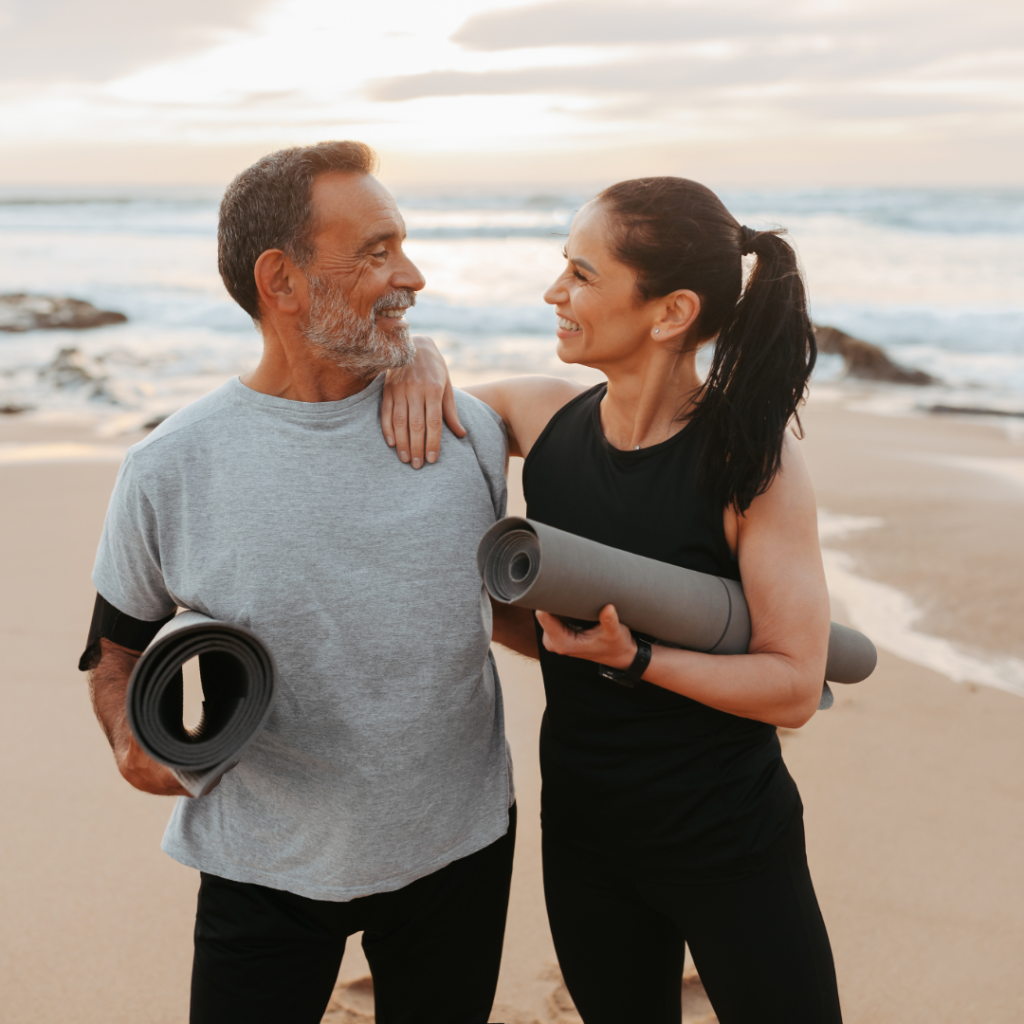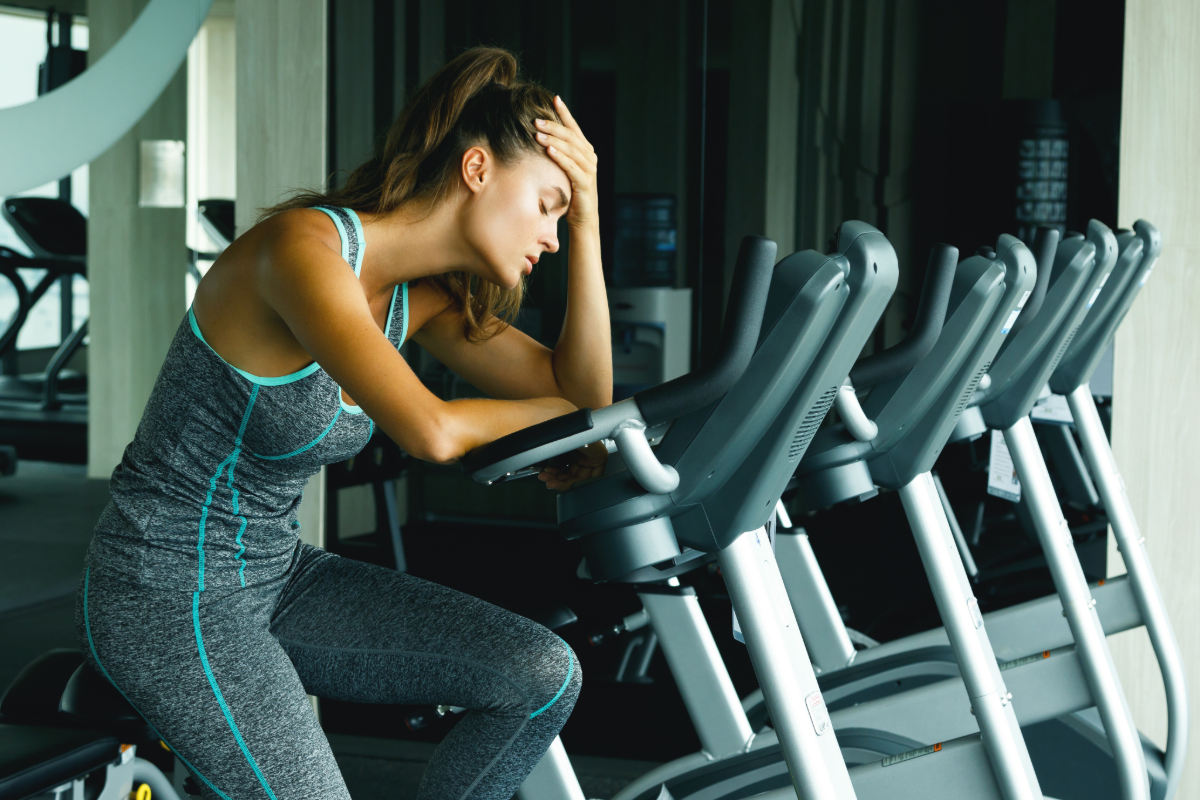Ever feel like you’re hitting a wall in your workouts? You’re dragging, sore, and just not seeing the results you expected? It could be a sneaky culprit called chronic inflammation.
What is Chronic Inflammation?
Short-term inflammation, like the soreness you feel after a tough workout, is a natural part of your body’s healing process. However, chronic inflammation is different—it’s like a lingering, low-grade fire burning inside you for months or even years. Various factors can trigger this persistent inflammation, including poor diet, smoking, stress, lack of quality sleep, obesity, autoimmune disorders, and even bad posture.
While brief bouts of inflammation are normal and necessary for your body’s short-term immune response, chronic inflammation poses serious health risks. Previous research indicates that it can significantly increase the likelihood of developing health conditions such as cancer, heart disease, type 2 diabetes, and kidney disease.
A recent study conducted by the University of Florida suggests that chronic inflammation affects a significant portion of the U.S. population, with an estimated 35% of adults experiencing its effects.
How Does Inflammation Hurt Your Fitness?
Chronic inflammation can leave you feeling fatigued, achy, and demotivated – not exactly the recipe for crushing your fitness goals! It can also mess with your recovery, making it harder to bounce back from workouts and potentially even increasing your risk of injuries. On a deeper level, chronic inflammation can disrupt your body’s ability to utilize energy efficiently. This can lead to feelings of sluggishness and hinder your performance during exercise.
Can Chronic Inflammation Lead to Weight Gain?
Struggling to lose weight despite your efforts? Chronic inflammation could also be contributing. This ongoing low-grade fire in your body can hinder weight loss in several ways:
- Insulin Resistance: Inflammation disrupts how your body uses insulin, a hormone that helps regulate blood sugar levels. When insulin isn’t working properly, glucose (sugar) can’t get into your cells as easily, leading to higher blood sugar levels. This can trigger your body to store excess sugar as fat, particularly in the liver, further contributing to weight gain and insulin resistance.
- Hormonal Imbalance: Both chronic inflammation and weight gain can affect the production of leptin, a hormone that signals fullness to your brain. Low leptin levels can make you feel hungrier more often, making it harder to manage your calorie intake and lose weight.
- Slower Metabolism: While the exact mechanisms are still being researched, some studies suggest that chronic inflammation might indirectly influence weight gain by affecting your metabolism. Metabolism refers to the rate at which your body burns calories for energy. Chronic inflammation may alter the function of certain hormones and enzymes involved in metabolism, potentially leading to a slower burning rate. This translates to your body burning fewer calories at rest, making it easier to gain weight and harder to lose it.
In short, chronic inflammation can play a significant role in weight gain by disrupting insulin function, leading to hormonal imbalances that affect appetite control, and potentially impacting your body’s metabolic rate.
The Good News: Exercise is Your Anti-Inflammatory Weapon!
Here’s the plot twist: regular exercise can actually reduce inflammation! Exercise triggers your body to produce anti-inflammatory chemicals called cytokines that help fight off that low-grade fire. This means exercise can be both a preventative measure and a way to manage existing inflammation. Studies have shown that regular physical activity can improve insulin sensitivity, which can further help manage chronic inflammation.
Here’s how exercise puts out the inflammatory fire:
- Increased Blood Flow: Exercise boosts circulation, delivering essential nutrients and oxygen to your muscles while flushing out toxins and inflammatory markers.
- Stress Reduction: Physical activity is a natural stress reliever, and chronic stress is a major culprit behind inflammation. Exercise helps your body better manage stress hormones like cortisol, which can contribute to inflammation.
- Improved Sleep Quality: Regular exercise promotes better sleep, which is crucial for recovery and allows your body to naturally reduce inflammation.
Low-Impact Exercises to Reduce Inflammation
If you’re dealing with chronic inflammation, incorporating low-impact exercises into your routine can be incredibly beneficial. Activities like swimming, cycling, yoga, and walking are gentle on the joints and muscles while still providing excellent cardiovascular benefits. These exercises help maintain blood flow, reduce stress, and promote overall well-being without putting too much strain on your body. Additionally, practices like Tai Chi and Pilates can improve flexibility and strength, further aiding in the reduction of inflammation.

Fight Back & Fuel Your Fitness
- Start Slow & Listen to Your Body: Don’t jump into intense workouts if you’re feeling run down. Gradually increase intensity and duration to avoid further stressing your body. Pay attention to your body’s signals – increased fatigue or soreness might be a sign to take a rest day or adjust your workout intensity.
- Fuel Your Body Right: Support your body with a clean, anti-inflammatory diet full of fruits, veggies, and whole grains. These foods are packed with antioxidants and other beneficial compounds that can help combat inflammation. Limit processed foods, sugar, and unhealthy fats. Processed foods are often loaded with refined carbohydrates and unhealthy fats, which can contribute to inflammation.
- Hydrate Like a Champion: Drinking plenty of water helps flush out toxins and keeps your body functioning smoothly. Dehydration can further exacerbate inflammation, so aim to drink water throughout the day, especially before, during, and after your workouts.
- Prioritize Sleep: When you’re well-rested, your body has a better chance to fight inflammation and repair itself. Aim for 7-8 hours of quality sleep each night. Chronic sleep deprivation disrupts your body’s natural production of hormones that regulate inflammation.
- Try Biomagnetic Therapy: Consider adding biomagnetic therapy to your wellness routine as a complementary approach to supporting your body’s natural healing processes. This natural, non-invasive therapy has been known to alleviate inflammation, facilitate weight loss, and promote overall balance within the body.
Related: The Modern Diet and Chronic Inflammation: Breaking the Cycle
Remember, you’re not alone in this fight! Chronic inflammation is a common obstacle, but with the right knowledge and a holistic approach, you can overcome it and achieve your fitness goals.
RA Balance Bahamas: Your Partner in Wellness
We believe in YOU! At RA Balance Bahamas, we’re here to help you unlock your full potential. Are you ready to break through that fitness wall and feel your best? Contact Us today to book an appointment!

